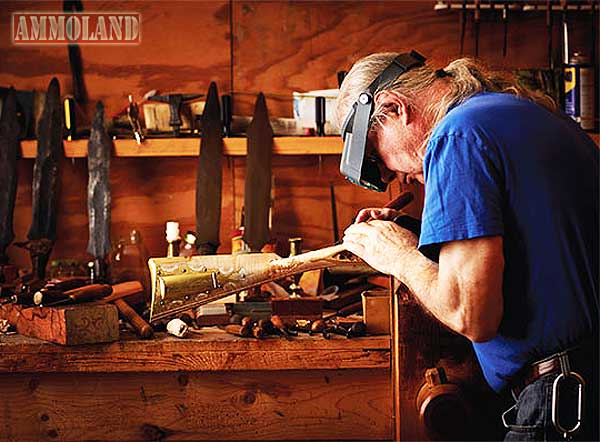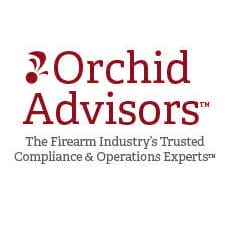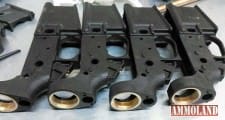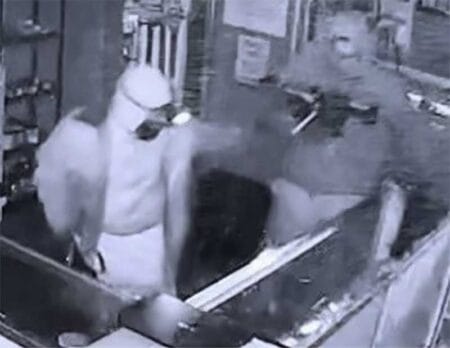

East Hartford, CT –-(Ammoland.com)- Ask any attorney and they’ll tell you that sometimes there isn’t a bright line, there’s just a common sense reading of the law.
So we thought we might introduce a conversation on an oft-discussed question: at what point does someone become a “manufacturer” of firearms, at least for ATF purposes.
Let’s start with what’s simple. Constructing a firearm from new parts into a functional firearm, including the creation of frames and receivers, is the basic step. When you perform this as a regular course of trade or business with a principal objective of earning your livelihood and making a profit through the sale or distribution of your work product, you become a manufacturer.
In case you want to look up the statutory language, you’ll find it here at 18 U.S.C. §921(a)(10). There’s also a handy ATF Ruling 2010-10, as well.
So where’s the tension?
It’s not so much the question of “regular course of trade of business,” because we all have a feeling for the difference between someone tinkering with a hobby and someone turning the basement into a start-up or renting a machine shop.
The tension comes between being a gunsmith under an FFL-01 license and a manufacturer under an FFL-07 license.
Or does it?
Let’s do one more round of what appears to be “simple.” Let’s describe gunsmithing as “skilled work.” It’s in the nature of repairing broken parts, customization, tasking like mounting sights perhaps even when rails have to be adjusted or filed. In many cases, the gunsmith is receiving a firearm from a customer and returning the firearm to the customer, even if the parts are coming from a third party source.
But, now come the “what ifs”….
- What if the gunsmith adjusts the weight of a trigger?
- What if the gunsmith replaces the barrel?
- What if the gunsmith substitutes a custom-built stock?
- What if the gunsmith fixes a broken firing pin?
- What if the gunsmith replaces a frame or receiver?
- What if the gunsmith works for an importer and converts a military firearm into a sporting firearm?
We’re not crossing the line here into the question of when a firearm becomes an NFA firearm. We’re staying within the zone of functions that might be served by a gunsmith at a local dealer in the routine course of your own firearms ownership, with an eye towards execution of jobs that go beyond routine care and maintenance. And if you want to test yourself further, hop over to this ATF Q&A page with 13 examples and their interpretation of whether gunsmithing or manufacturing.
Our series of questions brackets the grey zone of the point at which the FFL-01 gunsmith needs an FFL-07 manufacturing license.
The difference is important as a matter of federal law. The manufacturer marks firearms. The manufacturer files production reports on ATF Form 5300.11, even if only one firearm is produced in a year. The manufacturer is responsible for Firearms and Ammunition Excise Tax(FAET) and files excise tax reports, unless production is less than 50 firearms per year. The manufacturer must register not only with the ATF, but also with the Department of State for International Traffic in Arms Regulations(ITAR). The distinction can cost the gunsmith both money and time to operate as a manufacturer.

In ATF Ruling 2010-10, the ATF advanced its belief that it has “similarly and consistently interpreted the term ‘manufacturer’ under the [Gun Control Act] to mean any person who engages in the business of making firearms, by casting, assembly, alteration, or otherwise, for the purpose of sale or distribution.” It further explains that “a person who manufactures a firearm will require a manufacturer’s license if he/she devotes time, attention, and labor to such manufacture as a regular course of trade or business with the principal objective of livelihood and profit through the sale or distribution of the firearms manufactured.” This is compared to a ‘gunsmith’ whose activities, according to the ruling consist of repairing, modifying, embellishing, refurbishing, or installing parts in or on firearms provided by a customer.
The determining factor boils down to this statement “A dealer-gunsmith is not “engaged in the business” of manufacturing firearms because the firearms being produced are not owned by the dealer-gunsmith, and he/she does not sell or distribute the firearms manufactured.”
While the defined manufacturing/ gunsmithing process itself is important what is equally important is whether the firearm is returned to the customer (which may be another licensed manufacturer or importer) or whether it is then sold or distributed; entering commerce. So there you have it. A seemingly simple matter of categorization of functions to corresponding license types appears simple on the surface, but then generates lots of laws, regulations, rulings, guidance documents, and forms.
About Orchid Advisors – Transforming the Compliance Ecosystem
Orchid Advisors is a management consultancy that drives operational effectiveness, profitability and regulatory compliance. Unlike some consulting firms, our unique methodology provides process, technology and internal control solutions that achieve all three objectives at once. Our consultants derive their expertise from years served in Fortune 500, Federal Government and Global Business Consulting environments. Orchid Advisors is endorsed by the NSSF as a compliance information provider to its members. Orchid Advisors is an SAP Platform Partner. For more information, see www.orchidadvisors.






If a dealer has a complete lower and a complete upper for sale and puts the 2 together, does this constitute manufacturing?
Yes
Whats really interesting is there are guys all over sites like GB making and selling “dealing” in guns with no FFL at all and they are there for years with no worries. You do the right thing,get a FFL and have more scrutiny then thsoe that do it as a “hobby”.
There is a common belief in my area that it is illegal to machine/build from scratch any firearm on your own at home. but everything is read hear and on atf site seems to only applie if your selling something. If your a skilled machinist is there any legal reason you can’t make your own weapon
As long as you don’t sell it or give it away for consideration.
You can sell it as long as you engrave a serial number on it and transfer through an FFL.
What I’m reading is that a law which is repugnant to the Constitution isn’t repugnant to you.
But if you lease CNC machinery that is used in different locations and at night employees while on their own time use the machinery to construct ar15 type lower receivers with no serial numbers a nd no model numbers , is any of the parties required to have a type 07 ffl and ITAR registration?
Well according to ATF new policy the leaser would be required they say that the leaser would be transferring the reciver to the person who made it. WOW thats a stretch. Grasping to end 80% receiver kits
The ATF wants all of this nonsense to be confusing and convoluted. Nothing is black or white. The SOB’s will get you in the grey area of all of this BS !
When you were a kid and you made a .22 caliber zip gun out of an automobile antenna. LOL
Back when a automobile antenna was a metal tube instead of a plastic rod?
What if your not a US Citizen and not residing in a federal territory ? Your a state citizen with all your inalienable Constitutional rights in tack ?
if u really want something f’d up, allow lie-whores to be in control; reference bill clit-on & ebola-bama